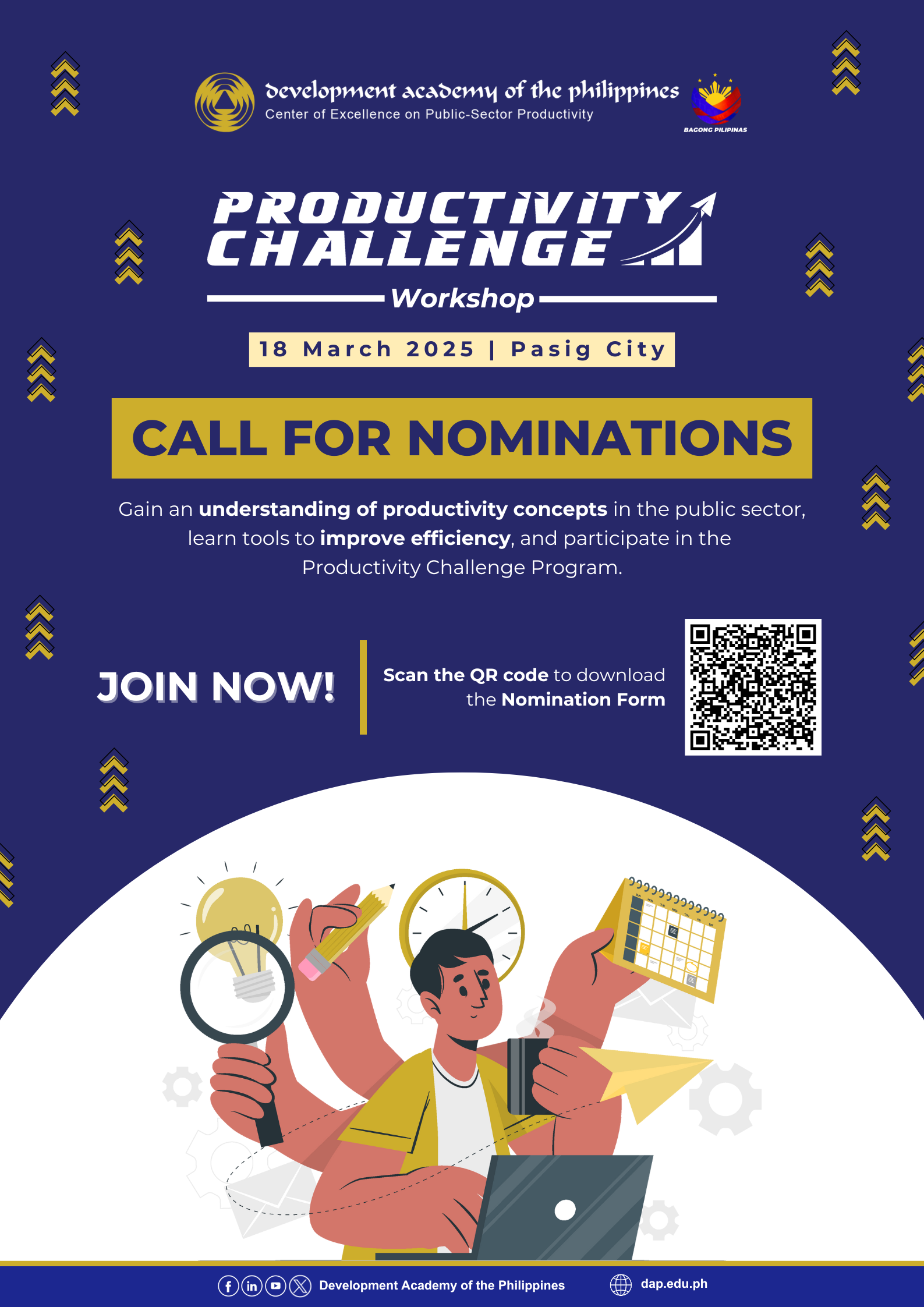As the focal organization for the Asian Productivity Organization (APO) Center of Excellence on Public-Sector Productivity, the Development Academy of the Philippines (DAP) continues to provide in-depth insights into the public sector profiles of APO member economies. This latest edition focuses on Thailand as it aims for a balanced national economic development.
With World Bank’s July 2024 Economic Monitor estimating public debt to rise to 64.6% of GDP by F.Y. 2025, and fiscal deficit to increase to 3.6% of GDP as budget execution normalizes, Thailand’s government is facing mounting fiscal challenges. A balanced approach to fiscal sustainability and short-term stimulus measures is necessary to address the issues, including the need for increased social spending and human capital investment due to an aging population. Despite a goods trade surplus, the financial account has registered a deficit amid exchange rate depreciation and net outflows. To unlock the growth potential of the country’s secondary cities and achieve a balanced national economic development, targeted reforms in local governance and revenue generation mechanisms are critical.








